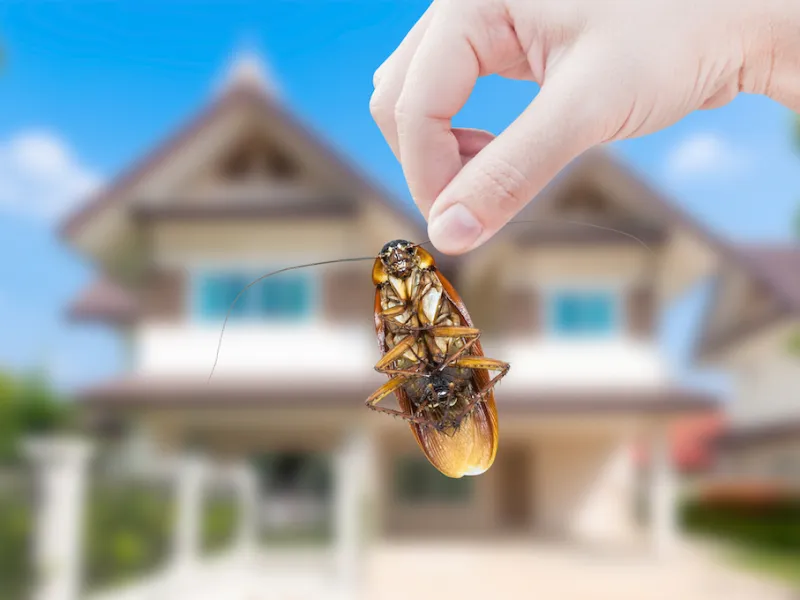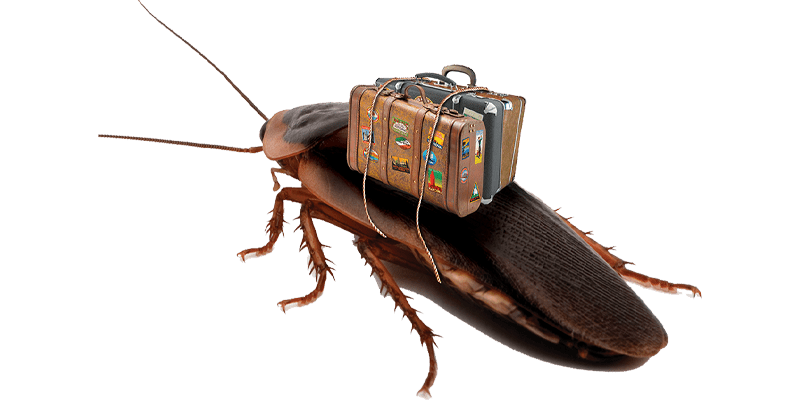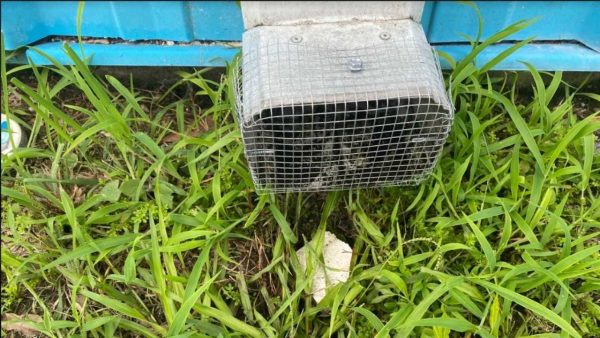Expert Rodent Control Port Charlotte to Prevent Damage to Your Home
Reveal the Value of Insect Control in Maintaining a Healthy And Balanced Atmosphere and Therapy Techniques

The Function of Pests in Communities
Parasites, commonly checked out solely as hassles, play a complex duty in ecological communities that is essential for keeping environmental equilibrium. They add substantially to various eco-friendly processes, consisting of pollination, nutrient biking, and pest control. Several insect species, such as bees and butterflies, are important pollinators for a broad range of plants, which in turn supports biodiversity and food manufacturing.
Furthermore, insects function as target for countless predators, creating a vital link in food webs. This connection makes certain the survival of numerous species and aids manage populations within communities (Termite treatment Port Charlotte). Decomposer insects, such as certain beetles and fungi, are crucial in breaking down organic issue, hence improving soil and helping with vitamins and mineral recycling.
Alternatively, while bugs can be advantageous, their overpopulation or invasion right into non-native settings might disrupt these environmental features. This complexity highlights the significance of understanding pest dynamics, as efficient insect administration strategies need to take into consideration both their environmental roles and potential effect on human activities. Stabilizing pest presence while minimizing injury is crucial for maintaining the stability of environments and making certain agricultural efficiency.
Health And Wellness Threats Related To Bugs
The presence of pests in numerous atmospheres extends past their ecological duties, as they additionally posture substantial health dangers to pets and people. Numerous parasites, consisting of bugs, rats, and bloodsuckers, are carriers of diseases that can have major wellness ramifications. For example, rats are known to transfer hantavirus and leptospirosis, both of which can bring about extreme respiratory system and kidney issues, specifically.
Insects such as ticks and mosquitoes are infamous for spreading vector-borne illness like jungle fever, dengue fever, and Lyme disease. These health problems can cause high morbidity and death rates, especially in at risk populaces. Furthermore, pests like insects and roaches can exacerbate allergic reactions and bronchial asthma, adding to breathing problems in people, especially those with pre-existing conditions.
Additionally, the presence of pests can lead to psychological stress and discomfort, affecting total health. Contamination of food and surface areas by parasite droppings and remains can lead to foodborne ailments, highlighting the relevance of preserving sanitary conditions. Understanding the health threats connected with insects is important in identifying the requirement of effective pest administration strategies to safeguard animal and human wellness.

Advantages of Effective Pest Control
Effective bug control is essential for preserving a healthy and balanced and risk-free environment, as it regularly alleviates the countless dangers connected with pest problems. One of the primary benefits of reliable pest management is the reduction of health hazards.
Additionally, efficient bug control safeguards residential or commercial property and structures from damages. Lots of bugs, like termites and woodworker ants, can create substantial architectural damages that may call for costly repairs. By proactively taking care of these invasions, services and property owners can shield their financial investments.
An additional substantial advantage is the enhancement of general lifestyle. A pest-free atmosphere adds to mental well-being and minimizes stress and anxiety linked with invasions. In addition, efficient parasite control promotes a safer atmosphere for youngsters and family pets, guaranteeing that homes stay shelters free from disease-causing organisms and damaging chemicals.
Typical Parasite Control Techniques

In the realm of insect monitoring, various techniques are used to fight infestations effectively. These methods can be generally classified right into three primary techniques: cultural, mechanical, and chemical controls.
Social control entails changing techniques to reduce insect facility, survival, and reproduction. This may consist of crop rotation, appropriate hygiene, and habitat control, which jointly create a setting much less for pest expansion.
Mechanical control employs physical methods to eliminate bugs (Termite treatment Port Charlotte). Methods such as traps, vacuum cleaners, and barriers are commonly utilized to directly remove pests from a location. This strategy is especially effective for handling rats and pests without making use of unsafe chemicals
Chemical control involves the application of chemicals to manage bugs. These substances can be categorized into pesticides, herbicides, and fungicides, each targeting details types of bugs. It is important to utilize these chemicals carefully, More Bonuses adhering to safety standards and laws to lessen prospective damage to non-target species and the atmosphere.
Each insect control strategy has its benefits and constraints, and often, an integrated method combining several approaches yields the very best outcomes in maintaining a pest-free atmosphere.
Lasting Pest Administration Practices
Lasting parasite administration techniques encompass a variety of techniques created to lessen ecological effect while properly managing insect populations. These techniques prioritize the usage of eco-friendly approaches over chemical pesticides, consequently lowering the threat of damage to non-target varieties, including valuable bugs, wildlife, and humans.
Integrated Insect Monitoring (IPM) is a keystone of sustainable methods, incorporating biological, cultural, mechanical, and chemical strategies to handle parasites. Biological control includes presenting all-natural killers or parasites to reduce pest populaces. Social practices, such as crop turning and polyculture, disrupt pest life cycles and improve ecosystem resilience.
Mechanical techniques, such as barriers or traps, can effectively protect against bug access without chemical intervention. Furthermore, keeping healthy environments through appropriate soil management, plant wellness, and biodiversity can naturally reduce pest problems.
Education and learning and recognition are important elements, empowering individuals and communities to recognize parasite hazards early and implement preventative actions. Termite treatment Port Charlotte. By cultivating an all natural strategy that balances insect control with eco-friendly integrity, lasting bug administration techniques not just safeguard plants and structures yet likewise add to a healthier environment for future generations
Verdict

Understanding the health and wellness threats associated with bugs is crucial in acknowledging the necessity of efficient parasite monitoring techniques to protect human and animal wellness.
Reliable pest control is necessary for keeping a risk-free and healthy setting, as it continually mitigates the many threats linked with pest invasions.Integrated Parasite Management (IPM) is a keystone of lasting techniques, incorporating organic, social, mechanical, and chemical techniques to take care of bugs. web By understanding the role of pests, recognizing involved health and wellness dangers, and utilizing diverse therapy methods, a sustainable technique to pest management can be accomplished. Integrated Pest Management (IPM) highlights an alternative methodology that mitigates injury to advantageous organisms while successfully managing pest populaces.